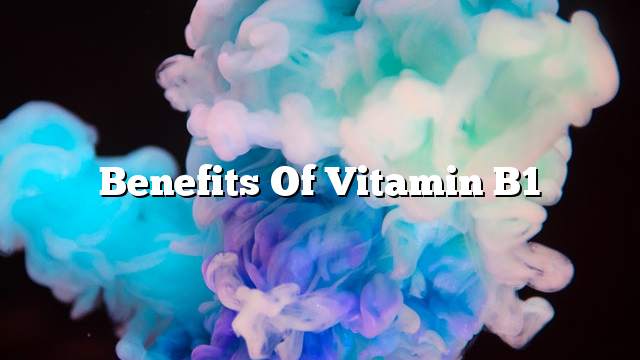Vitamin B1
Vitamin B1 is a very important vitamin for the human body. It is a water soluble vitamin. Its scientific name is known as thiamine. It is one of the first organic compounds to be considered vitamins. It is known that thiamine stores very little in the body and is consumed quickly. To eat foods that contain vitamin B1.
Foods contain vitamin B1
Vitamin B1 is found in many different food sources:
- Whole grains, found in crusts.
- The liver is a very rich source of vitamin B1.
- Sunflower seeds.
- Potatoes.
- Spinach.
- Cauliflower.
- Lemon.
- Oats.
- tuna.
- Flax.
- eggs.
- Brown rice.
Benefits of Vitamin B1
- Vitamin B1 helps improve the body’s various functions and works to cure many problems.
- It supports the production of energy in the human body; it produces glucose through the secretion of enzymes that act on the oxidation of sugar, which provides the body with the necessary energy.
- It increases the function of the heart. It helps to produce the neurotransmitter acetyl, which works to transfer messages between the nerves and muscles, thus improving the function of the heart, and the lack of thiamine leads to a deficiency in the functions of the heart.
- Delays signs of aging; Vitamin B1 is an antioxidant that works to protect the body and delay signs of aging.
- Strengthens memory and increases concentration; it treats neurological disorders, improves mood and raises morale.
- Works on appetite.
- Helps to grow the casing of the spinal cord in all nerves.
- Alzheimer’s disease is prevented. Many studies have shown that taking vitamin B1 (thiamine) can slow Alzheimer’s disease.
- Regulates digestion.
- Supports the immune system; it protects against many diseases.
- The eye lens protects against blindness, because the presence of vitamin B1 with other compounds in the body prevents cataracts.
- Increases the production of red blood cells in the body.
- Helps to treat patients with alcoholic addiction.
- Promotes blood circulation.
- It converts carbohydrates into energy to benefit the body.
- Helps reduce gastrointestinal problems such as: inflammation of the colon, and ulcers that cause diarrhea continuously.
Symptoms of Vitamin B1 deficiency
- Significant weight loss.
- Anorexia.
- Feeling lazy and lazy.
- Memory confusion with no focus.
- The weakness of the heart muscle, which causes its shortness to perform its functions.
- Problems with digestion.
- Problems in the muscles of the body, especially the muscles of the legs.
- Some foods contain vitamin B1, but the preparation method works to destroy it to be free of thiamine.
